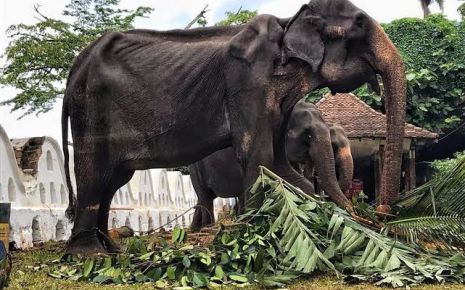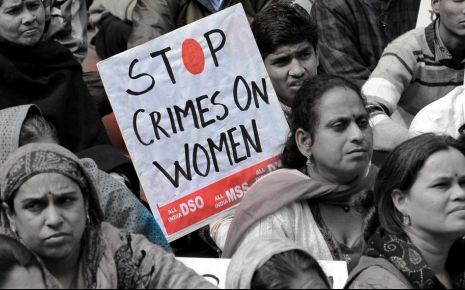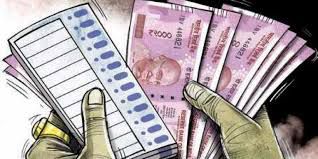Whether The Protection Under Section 197 Of The Code Of Criminal Procedure, 1973 Is Available To An Employee Of A Nationalized Bank
It is an established fact that to prosecute a civil servant for an offense
that has transpired from any act regarding his official duty, a sanction from
the appropriate authority is a mandatory requirement under the law for the time
being in force. The word "Sanction" has not been defined in the CrPC.
As per Webster's Third New Internal Dictionary, ''Sanction" is defined as:
"Explicit permission or recognition by one in Authority that gives validity to the act of another person or body; something that authorizes, confirms, or countenances." Through this article, the legal position of a manager of a nationalized bank is discussed to decipher whether the protection granted under section 197 of the code of criminal procedure is available to them.
According to section 197, when any person who is or was a civil servant, not removable from his office save by or with the sanction of the Central Government or State Government, is being accused of any offense alleged to have been committed by him while acting or purporting to act in the discharge of his official duties, no Court shall take cognizance of such offense, except with the previous sanction of the appropriate Government.
The intention of the legislature behind the introduction of this section was to ensure that vexatious prosecution is kept at a minimum and protection is provided to the civil servants, both during their tenure at the office as well as post-retirement, against the frivolous accusation that may be brought by private person who may have some personal prejudice against such civil servant.
Sanctions are not necessary for offenses committed outside the scope of a public servant's duty. However, if public servant exceeds their duty while performing official duties, they may still be protected by government sanction if there is a reasonable connection between their actions and their official duty.
The determining factor for whether sanction is required is whether the act is completely unrelated to official duty or if there is a reasonable connection to it. Honorable Supreme Court in the case of D. Devaraja vs Owais Sabeer Hussain 2 [Criminal Appeal No. 458 of 2020] pronounced that:
"The protection given under Section 197 Cr.PC is available if there is a reasonable connection between the act and the performance of the official duty, the fact that the act alleged is in excess of duty will not be a ground enough to deprive the policeman of the protection of government sanction for initiation of criminal action against him".
Also, in the case of Rajib Ranjan and others v. R. Vijaykumar (2015) 1 SCC 513, the court opined that "even while discharging his official duties, if a public servant enters into a criminal conspiracy or indulges in criminal misconduct, such misdemeanor on his part is not to be treated as an act in discharge of his official duties and, therefore, provisions of Section 197 of the Code will not be attracted".
Similar view has been upheld in the case of K. Kalimuthu vs. State by DSP and State of Orissa through Kumar Raghvendra Singh vs. Ganesh Chandra Jew. Moreover, in the case of State of Bihar versus P.P. Sharma, honorable Supreme Court held that adherence to section 197 is not a mere formality. The sanction must be given after giving careful consideration to the facts constituting the offence with which there is an accusation against the public servant.
It was iterated by the Supreme Court that:
"It is equally well settled that before granting sanction, the authority or the appropriate government must have before it, the necessary report and the material facts which prima facie establish the commission of offence charged for and appropriate government would apply their mind to those facts."
In this context, Article 311 of the Constitution of India plays a pivotal role. According to Article 311, any person who is a member of the civil service of the Union or the State or holds a civil post under the Union or the State, cannot be removed by an authority that is subordinate to the appointing authority. Therefore, cognate reading of both provisions entails that protection under section 197 of the Cr.PC is available only to such public servants whose appointing authority is the Central Government or the State Government and not to every public servant.
The question of extending the protection available under section 197 to the employee of a nationalized bank came for consideration before the honorable Supreme Court in the case of K. Ch. Prasad v. Smt. J. Vanalatha Devi and Others. In this case, the employee of a nationalized bank raised questions as to the maintainability of the prosecution in the want of absence of necessary sanction as envisaged under section 197 of the CrPC. This contention was discarded by both the Metropolitan Magistrate as well as the honorable High Court.
It was iterated by the honorable Supreme Court that:
"It is very clear from this provision that this section is attracted only in cases where the public servant is such who is not removable from his office save by or with the sanction of the Government. It is not disputed that the appellant is not holding a post where he could not be removed from service except by or with the sanction of the government. In this view of the matter even if it is held that the appellant is a public servant still provisions of Section 197 are not attracted at all."
This judgment was also seconded in the case of "S.K. Miglani". It should be noted that the banking sector is regulated by the Reserve Bank of India and is considered a part of the State under Article 12 of the Constitution of India. Additionally, according to Section 46A of the Banking Regulation Act, 1949, the appellant in this case is deemed to be a "public servant" for the purposes of the provisions under the PC Act (Prevention of Corruption Act), 1988. However, this designation cannot be extended to the IPC.
Even if we assume that the appellant should be considered a "public servant" for the IPC as well, the protection provided under Section 197 of the CrPC is not available to the appellant because the conditions specified in Section 197 are not met. Similar view has been upheld recently by the honorable Supreme Court in the case of A. Sreenivasa Reddy versus Rakesh Sharma & Others in Criminal Appeal No. 2339 of 2023.
Thus, from the above discussion it can be adequately inferred that an employee of a nationalized bank cannot be equated with the employee of the Union or State for the purpose of extending protection available otherwise under section 197 of the Code of Criminal Procedure.
As per Webster's Third New Internal Dictionary, ''Sanction" is defined as:
"Explicit permission or recognition by one in Authority that gives validity to the act of another person or body; something that authorizes, confirms, or countenances." Through this article, the legal position of a manager of a nationalized bank is discussed to decipher whether the protection granted under section 197 of the code of criminal procedure is available to them.
According to section 197, when any person who is or was a civil servant, not removable from his office save by or with the sanction of the Central Government or State Government, is being accused of any offense alleged to have been committed by him while acting or purporting to act in the discharge of his official duties, no Court shall take cognizance of such offense, except with the previous sanction of the appropriate Government.
The intention of the legislature behind the introduction of this section was to ensure that vexatious prosecution is kept at a minimum and protection is provided to the civil servants, both during their tenure at the office as well as post-retirement, against the frivolous accusation that may be brought by private person who may have some personal prejudice against such civil servant.
Sanctions are not necessary for offenses committed outside the scope of a public servant's duty. However, if public servant exceeds their duty while performing official duties, they may still be protected by government sanction if there is a reasonable connection between their actions and their official duty.
The determining factor for whether sanction is required is whether the act is completely unrelated to official duty or if there is a reasonable connection to it. Honorable Supreme Court in the case of D. Devaraja vs Owais Sabeer Hussain 2 [Criminal Appeal No. 458 of 2020] pronounced that:
"The protection given under Section 197 Cr.PC is available if there is a reasonable connection between the act and the performance of the official duty, the fact that the act alleged is in excess of duty will not be a ground enough to deprive the policeman of the protection of government sanction for initiation of criminal action against him".
Also, in the case of Rajib Ranjan and others v. R. Vijaykumar (2015) 1 SCC 513, the court opined that "even while discharging his official duties, if a public servant enters into a criminal conspiracy or indulges in criminal misconduct, such misdemeanor on his part is not to be treated as an act in discharge of his official duties and, therefore, provisions of Section 197 of the Code will not be attracted".
Similar view has been upheld in the case of K. Kalimuthu vs. State by DSP and State of Orissa through Kumar Raghvendra Singh vs. Ganesh Chandra Jew. Moreover, in the case of State of Bihar versus P.P. Sharma, honorable Supreme Court held that adherence to section 197 is not a mere formality. The sanction must be given after giving careful consideration to the facts constituting the offence with which there is an accusation against the public servant.
It was iterated by the Supreme Court that:
"It is equally well settled that before granting sanction, the authority or the appropriate government must have before it, the necessary report and the material facts which prima facie establish the commission of offence charged for and appropriate government would apply their mind to those facts."
In this context, Article 311 of the Constitution of India plays a pivotal role. According to Article 311, any person who is a member of the civil service of the Union or the State or holds a civil post under the Union or the State, cannot be removed by an authority that is subordinate to the appointing authority. Therefore, cognate reading of both provisions entails that protection under section 197 of the Cr.PC is available only to such public servants whose appointing authority is the Central Government or the State Government and not to every public servant.
The question of extending the protection available under section 197 to the employee of a nationalized bank came for consideration before the honorable Supreme Court in the case of K. Ch. Prasad v. Smt. J. Vanalatha Devi and Others. In this case, the employee of a nationalized bank raised questions as to the maintainability of the prosecution in the want of absence of necessary sanction as envisaged under section 197 of the CrPC. This contention was discarded by both the Metropolitan Magistrate as well as the honorable High Court.
It was iterated by the honorable Supreme Court that:
"It is very clear from this provision that this section is attracted only in cases where the public servant is such who is not removable from his office save by or with the sanction of the Government. It is not disputed that the appellant is not holding a post where he could not be removed from service except by or with the sanction of the government. In this view of the matter even if it is held that the appellant is a public servant still provisions of Section 197 are not attracted at all."
This judgment was also seconded in the case of "S.K. Miglani". It should be noted that the banking sector is regulated by the Reserve Bank of India and is considered a part of the State under Article 12 of the Constitution of India. Additionally, according to Section 46A of the Banking Regulation Act, 1949, the appellant in this case is deemed to be a "public servant" for the purposes of the provisions under the PC Act (Prevention of Corruption Act), 1988. However, this designation cannot be extended to the IPC.
Even if we assume that the appellant should be considered a "public servant" for the IPC as well, the protection provided under Section 197 of the CrPC is not available to the appellant because the conditions specified in Section 197 are not met. Similar view has been upheld recently by the honorable Supreme Court in the case of A. Sreenivasa Reddy versus Rakesh Sharma & Others in Criminal Appeal No. 2339 of 2023.
Thus, from the above discussion it can be adequately inferred that an employee of a nationalized bank cannot be equated with the employee of the Union or State for the purpose of extending protection available otherwise under section 197 of the Code of Criminal Procedure.
Law Article in India
Legal Question & Answers
Lawyers in India - Search By City
LawArticles
How To File For Mutual Divorce In Delhi

How To File For Mutual Divorce In Delhi Mutual Consent Divorce is the Simplest Way to Obtain a D...
Increased Age For Girls Marriage

It is hoped that the Prohibition of Child Marriage (Amendment) Bill, 2021, which intends to inc...
Facade of Social Media

One may very easily get absorbed in the lives of others as one scrolls through a Facebook news ...
Section 482 CrPc - Quashing Of FIR: Guid...

The Inherent power under Section 482 in The Code Of Criminal Procedure, 1973 (37th Chapter of t...
The Uniform Civil Code (UCC) in India: A...

The Uniform Civil Code (UCC) is a concept that proposes the unification of personal laws across...
Role Of Artificial Intelligence In Legal...

Artificial intelligence (AI) is revolutionizing various sectors of the economy, and the legal i...








Please Drop Your Comments